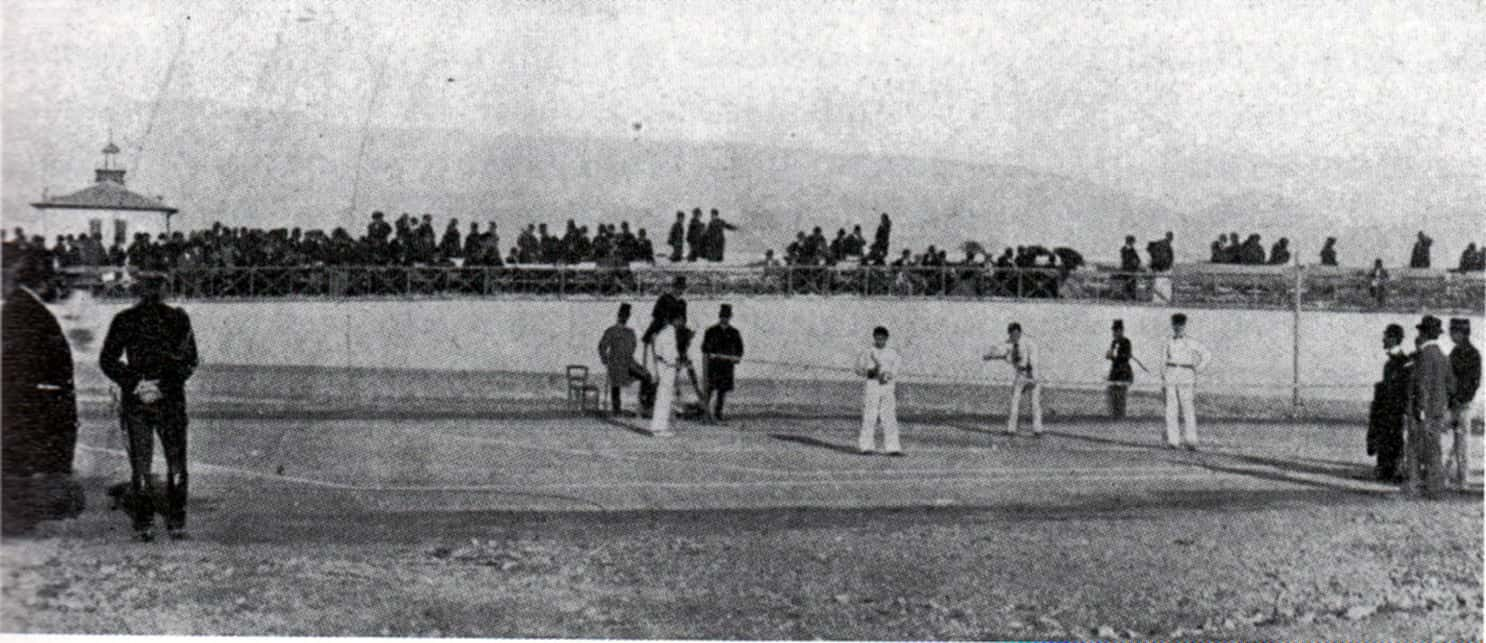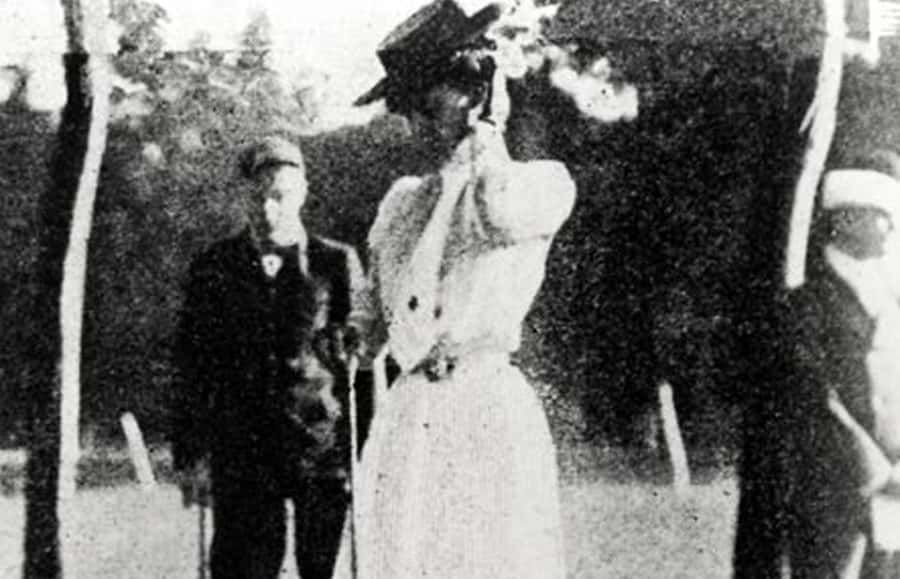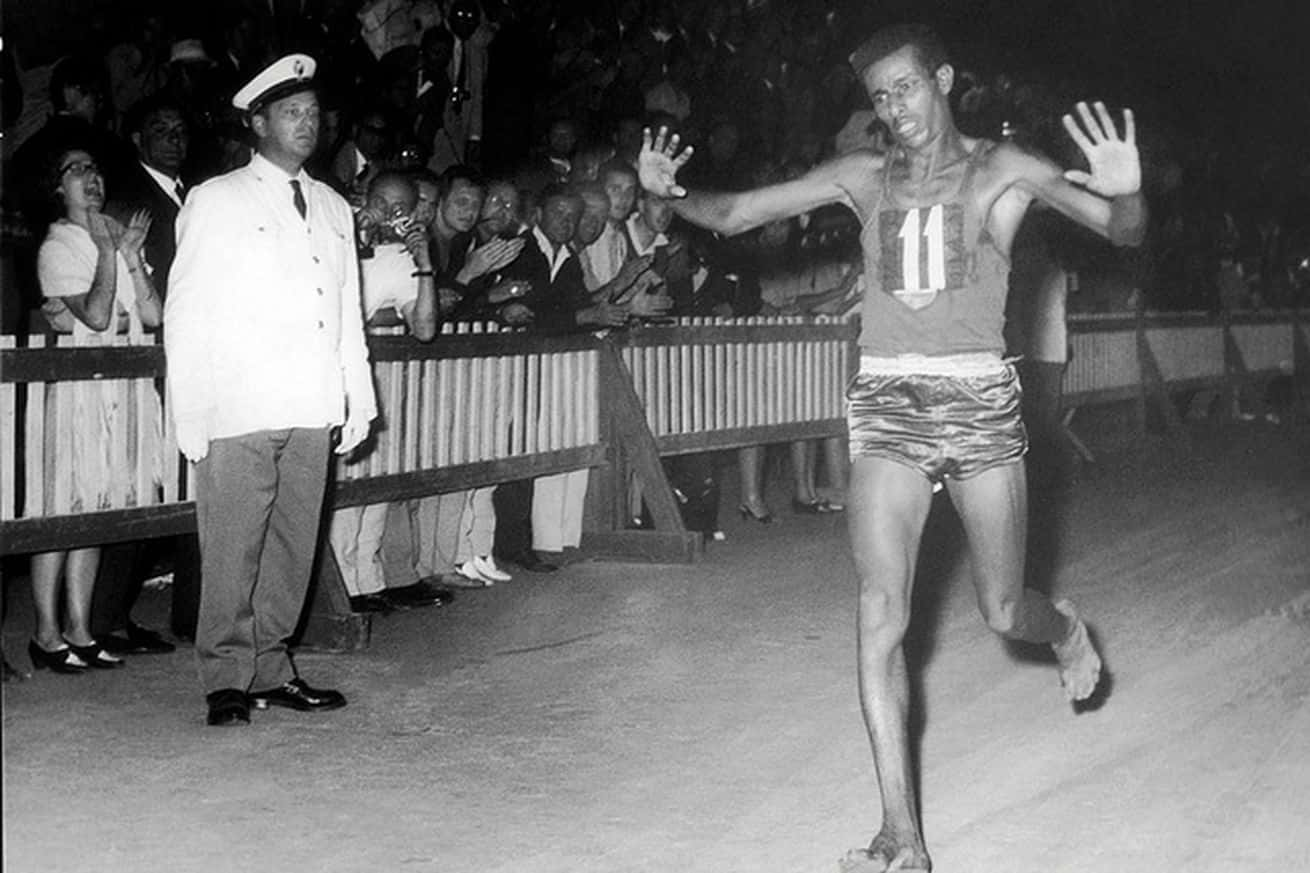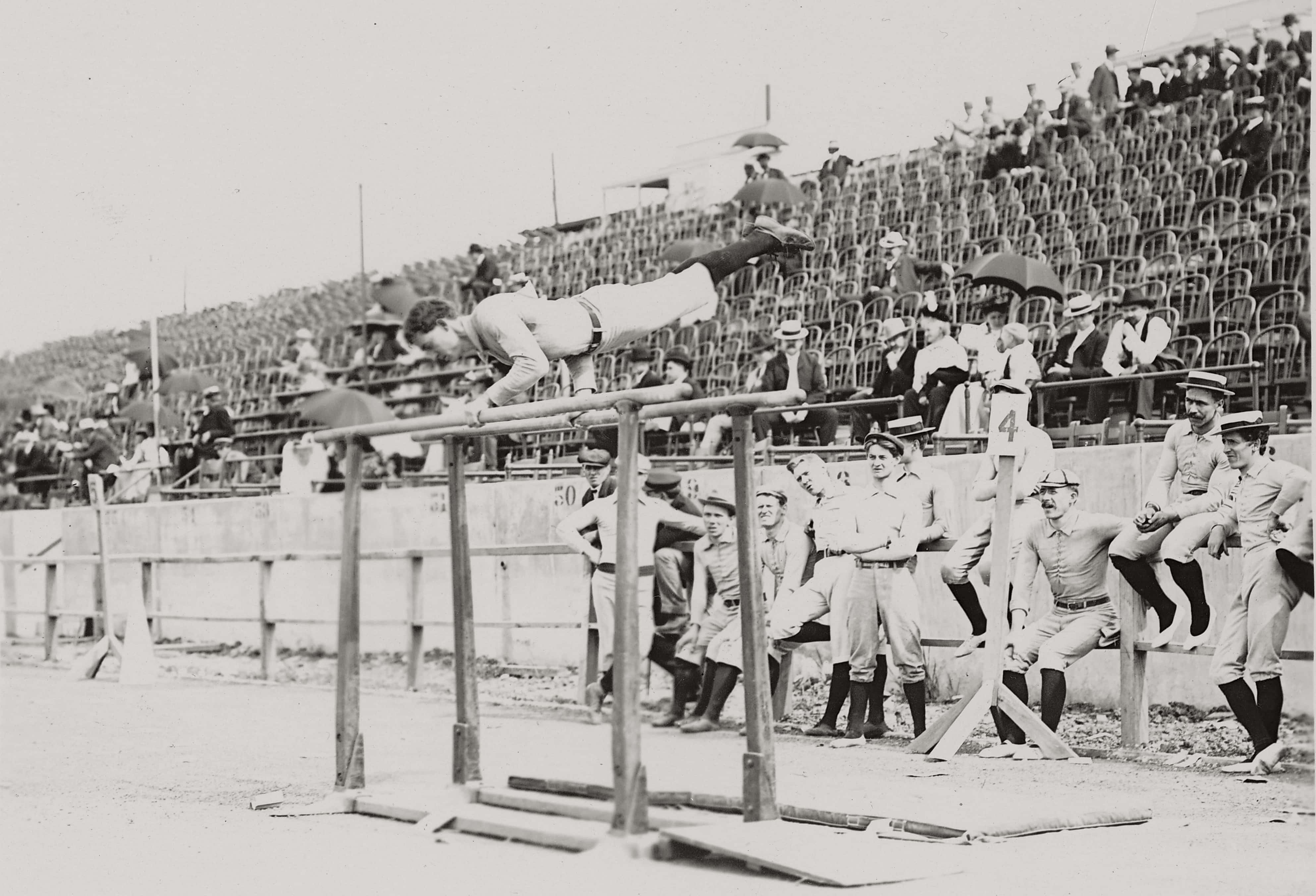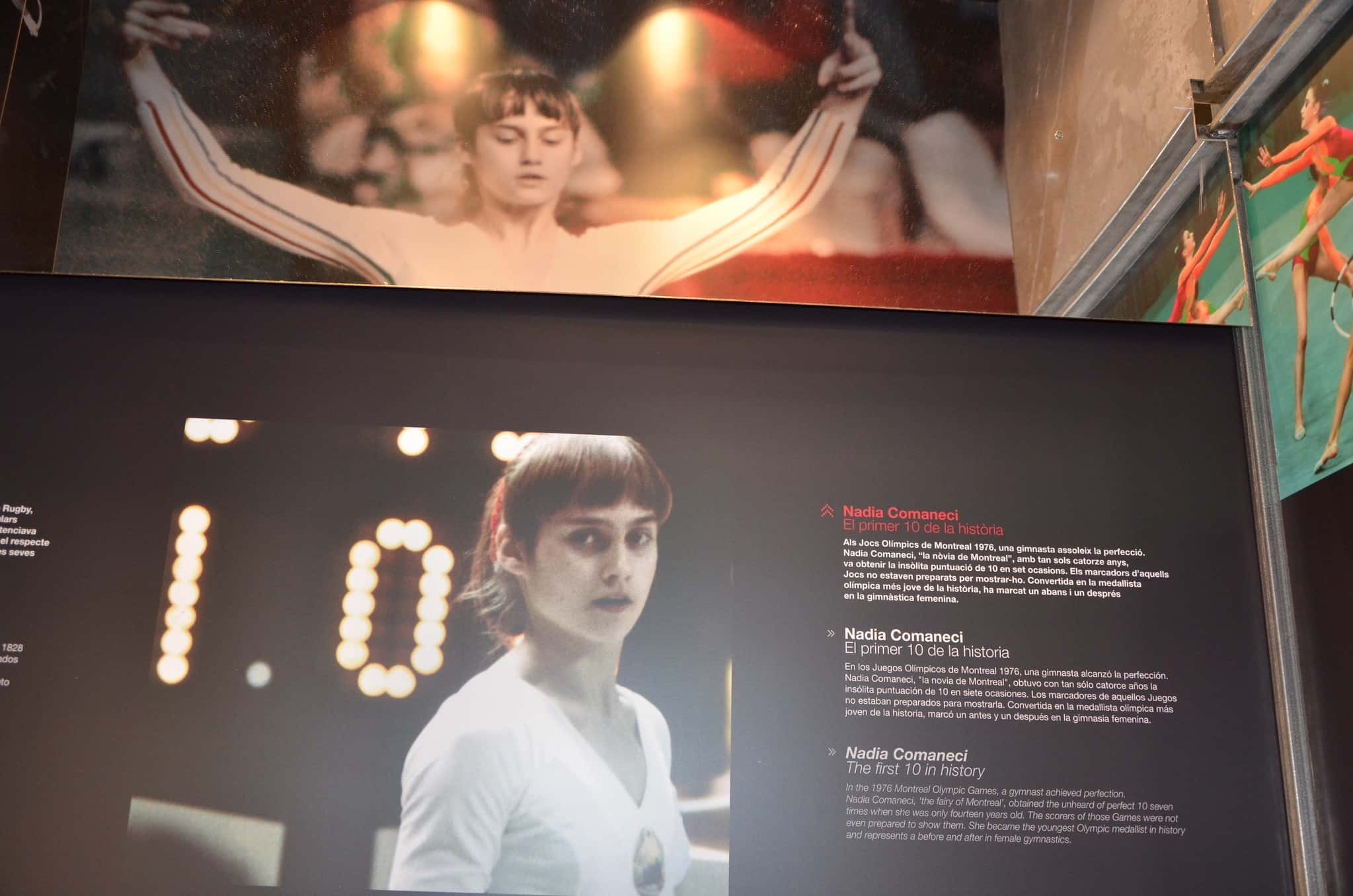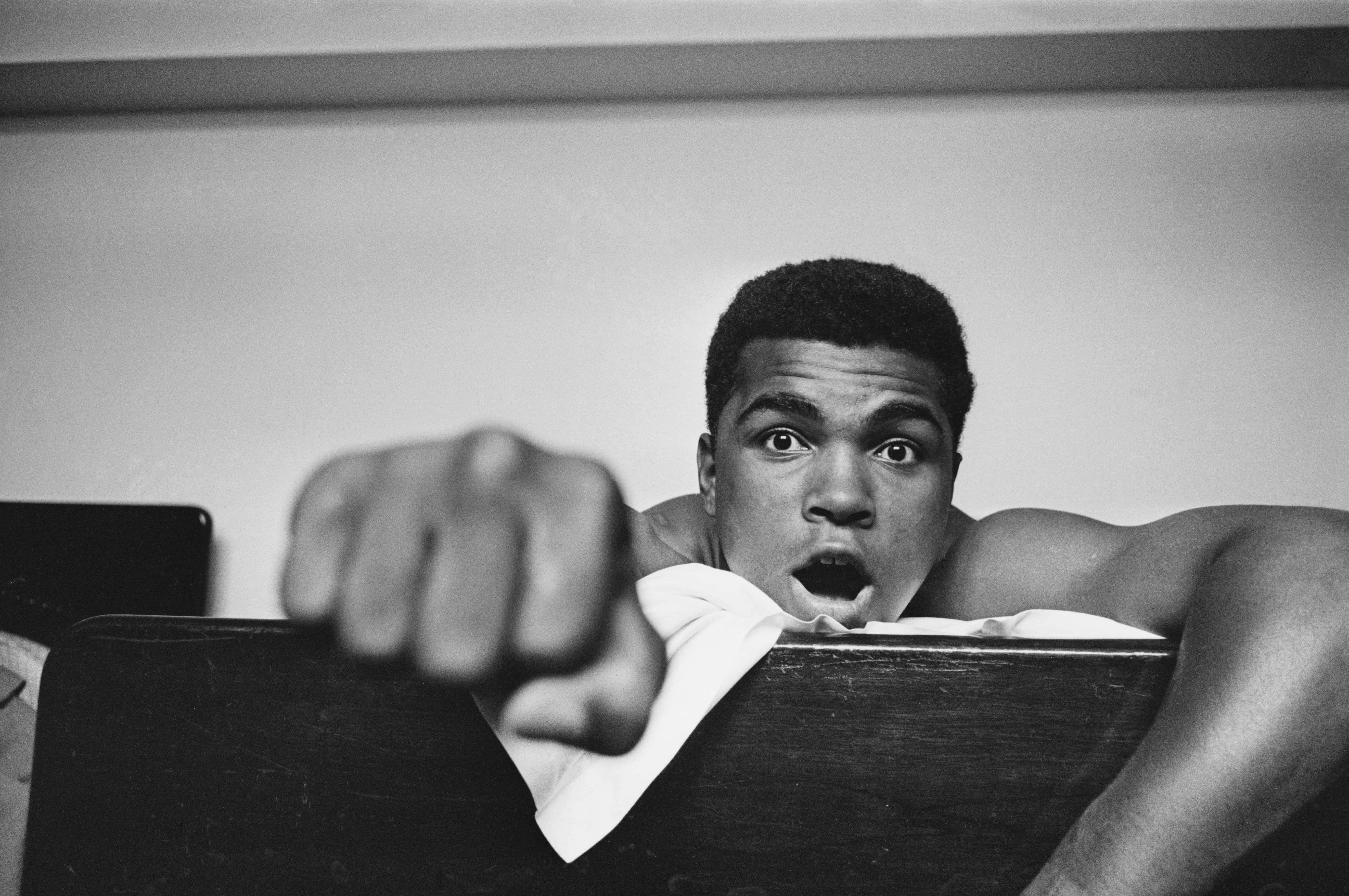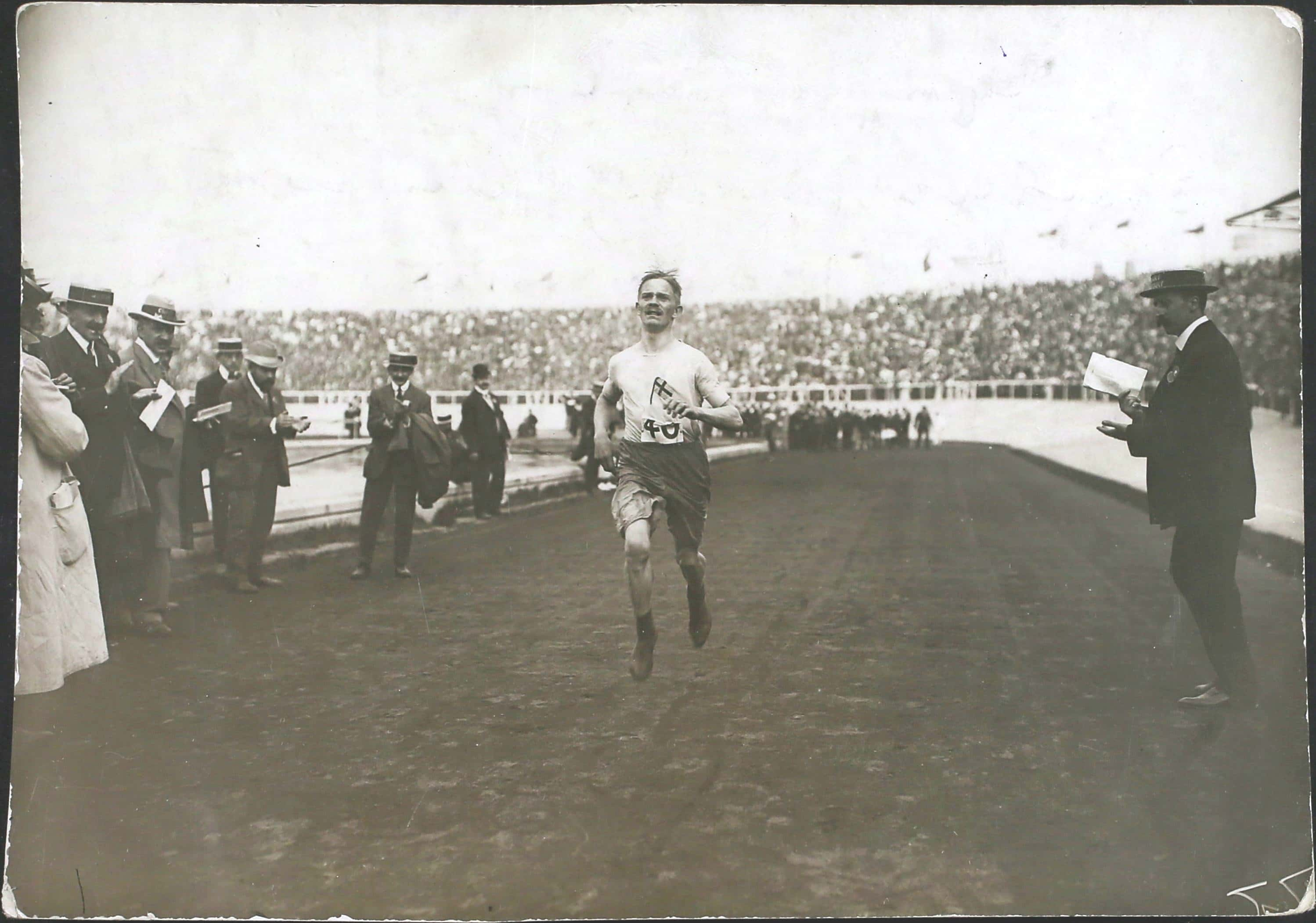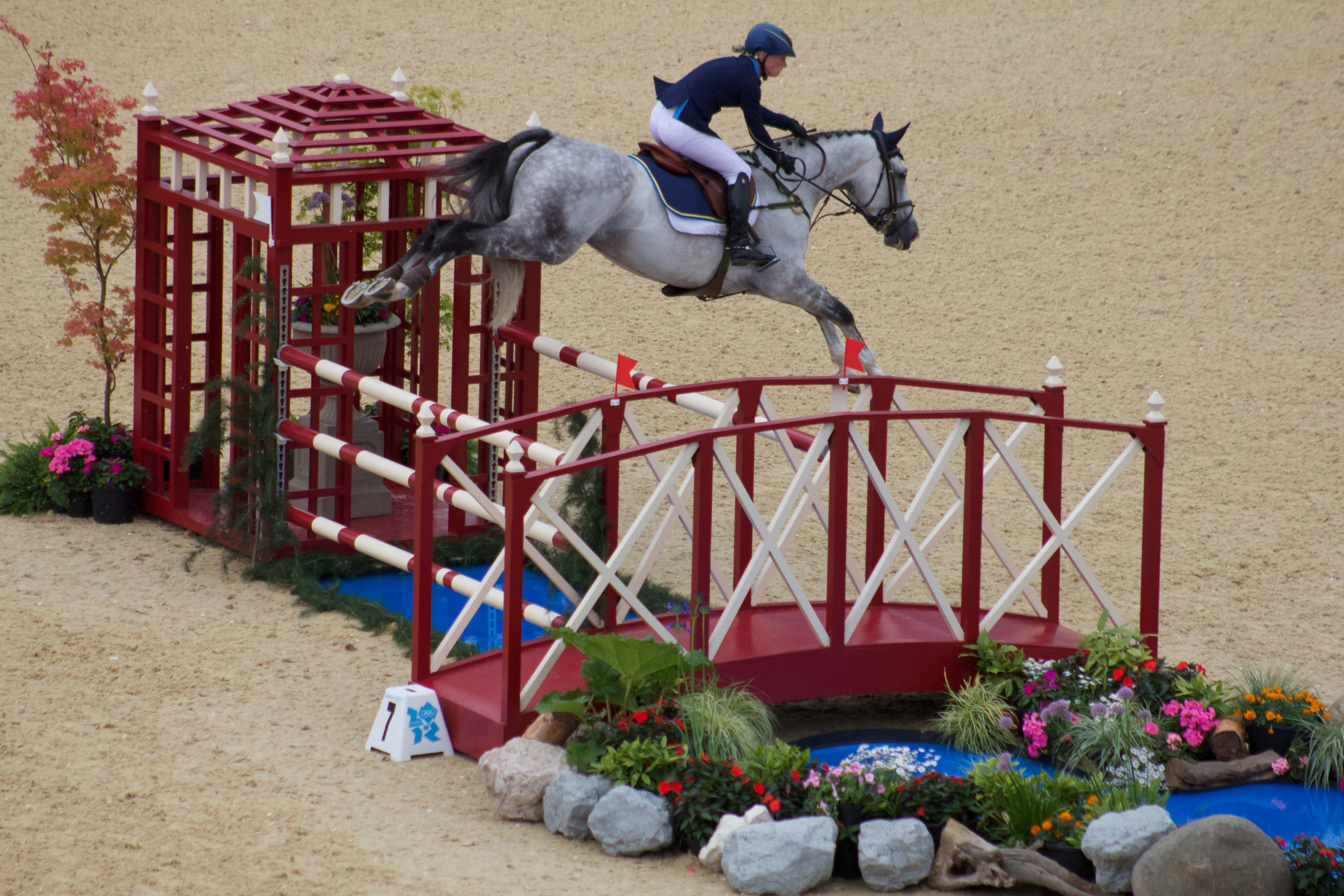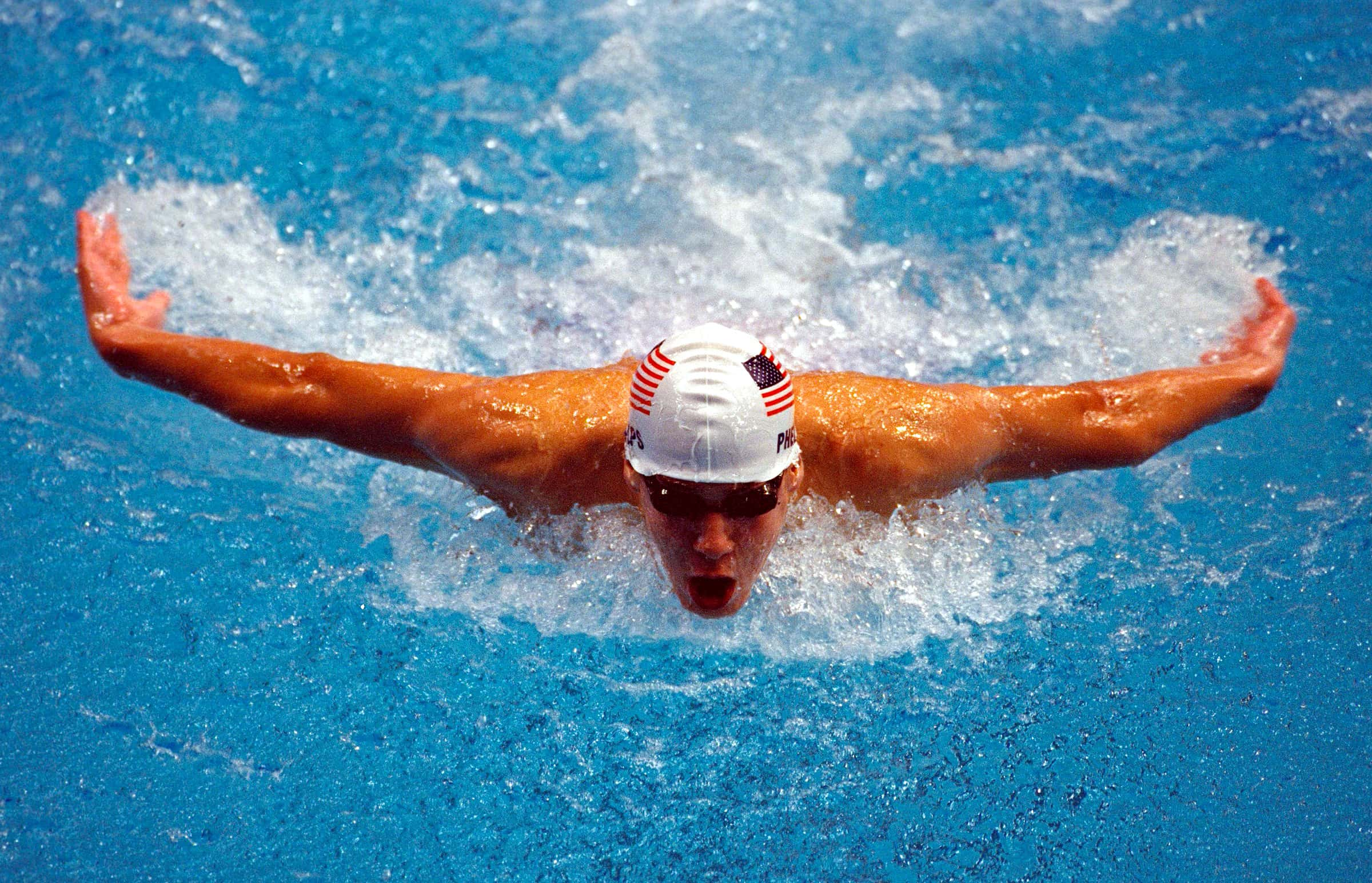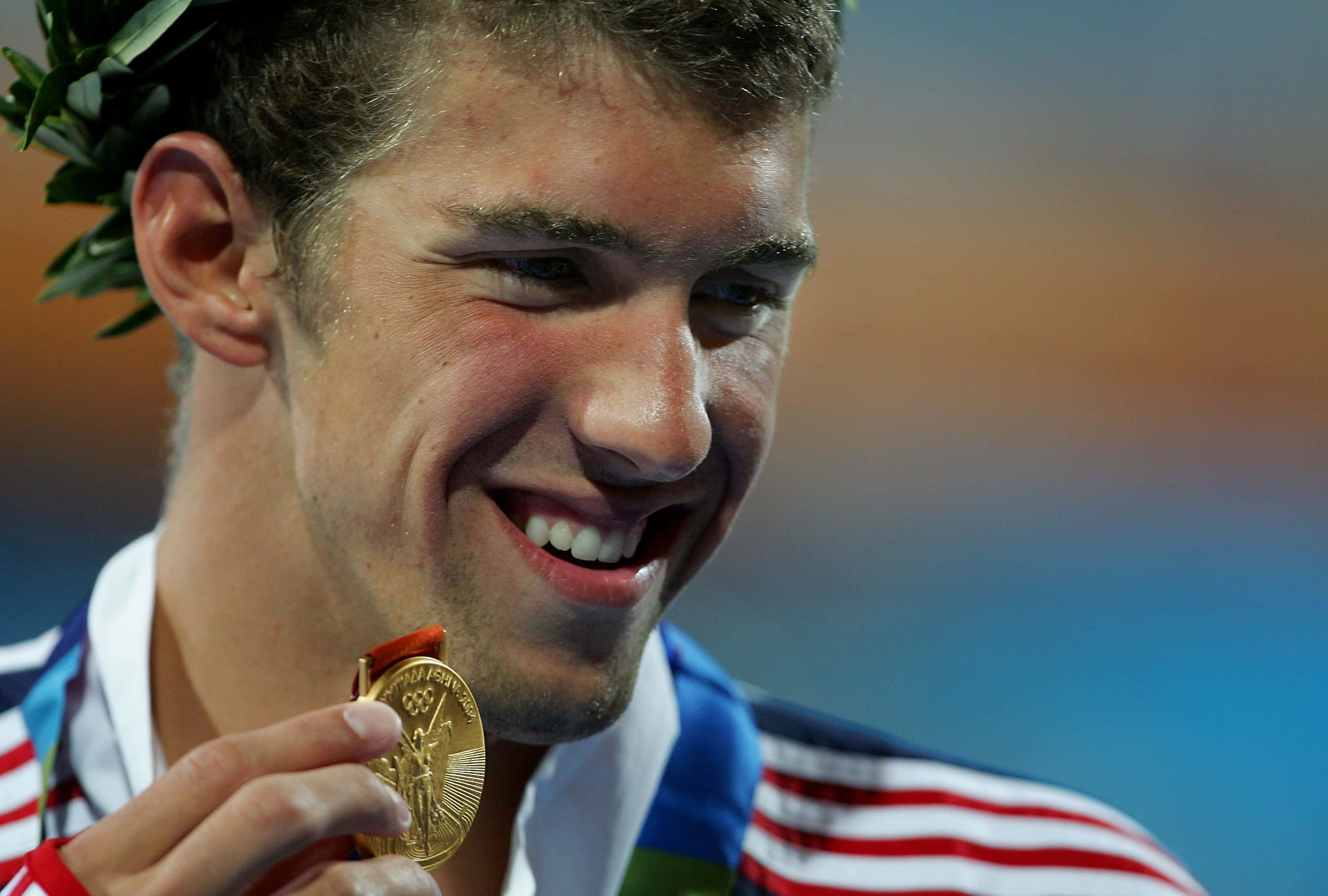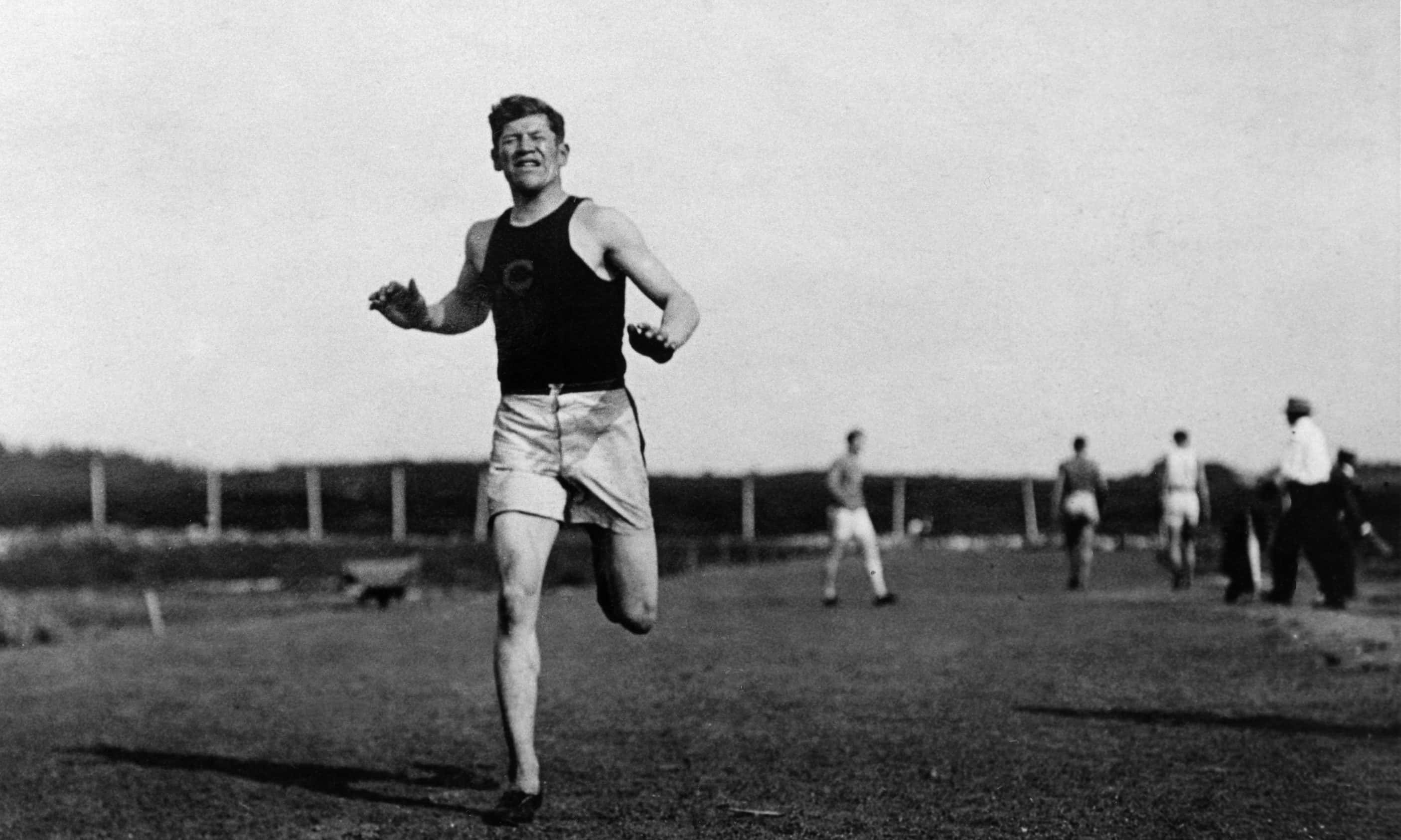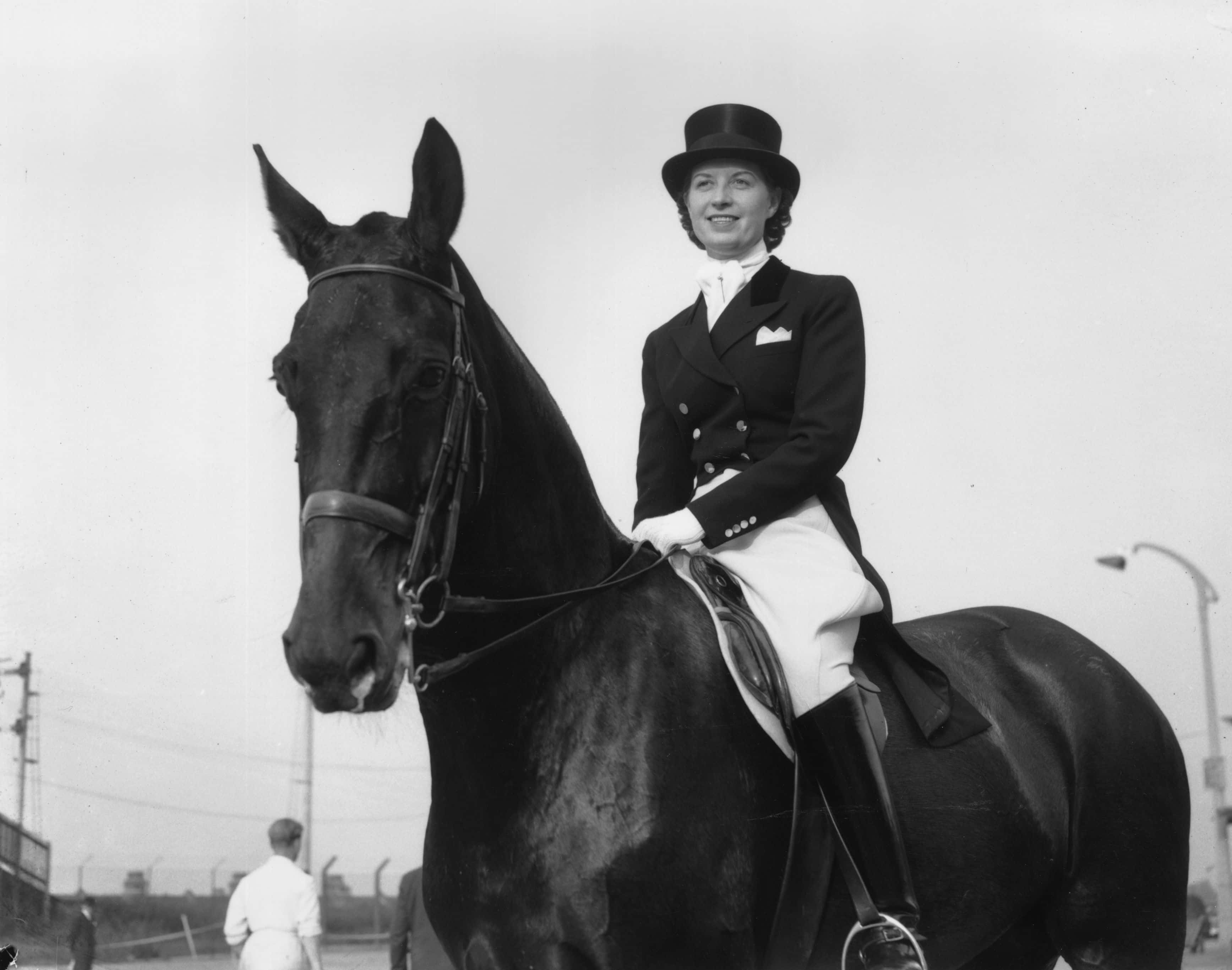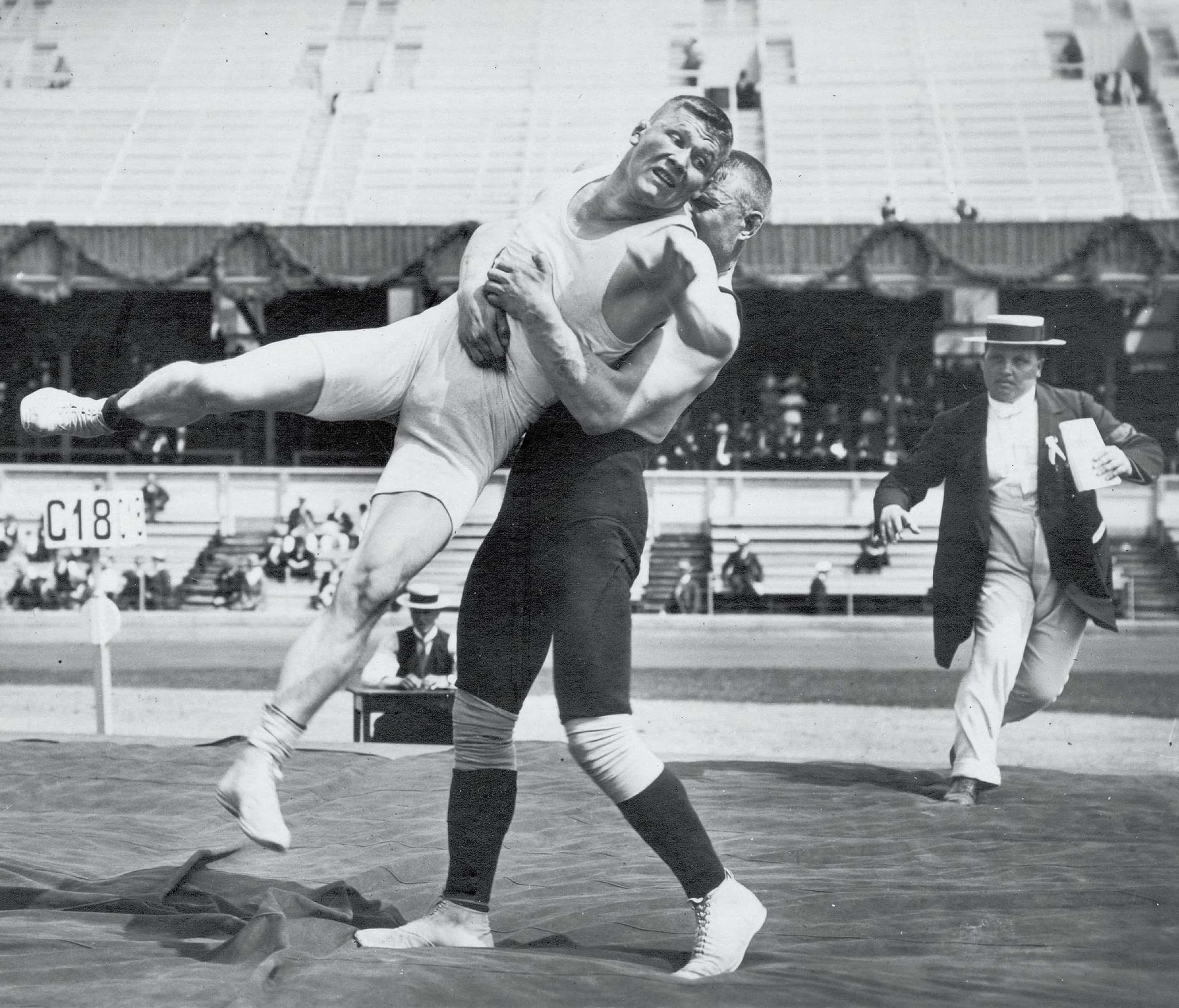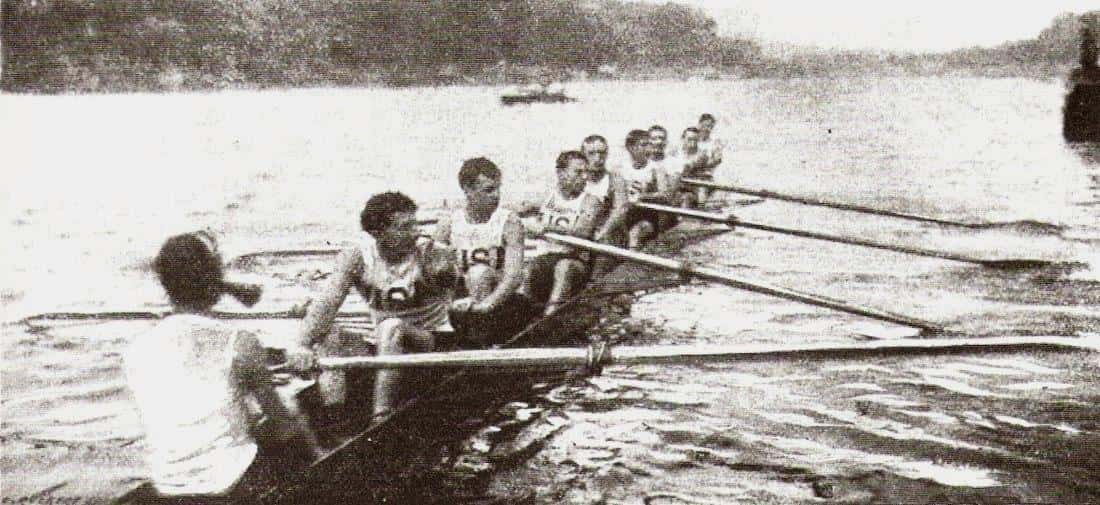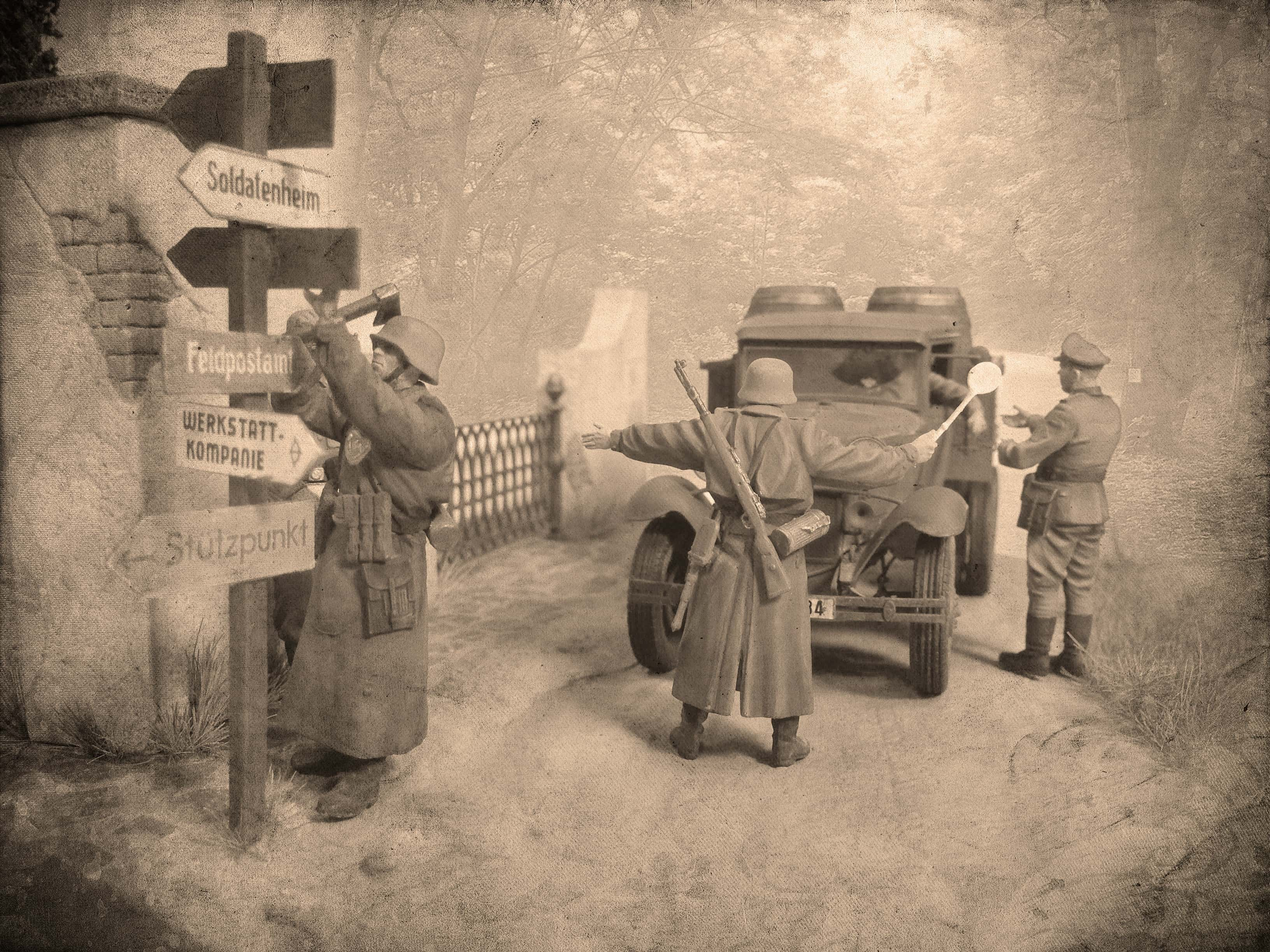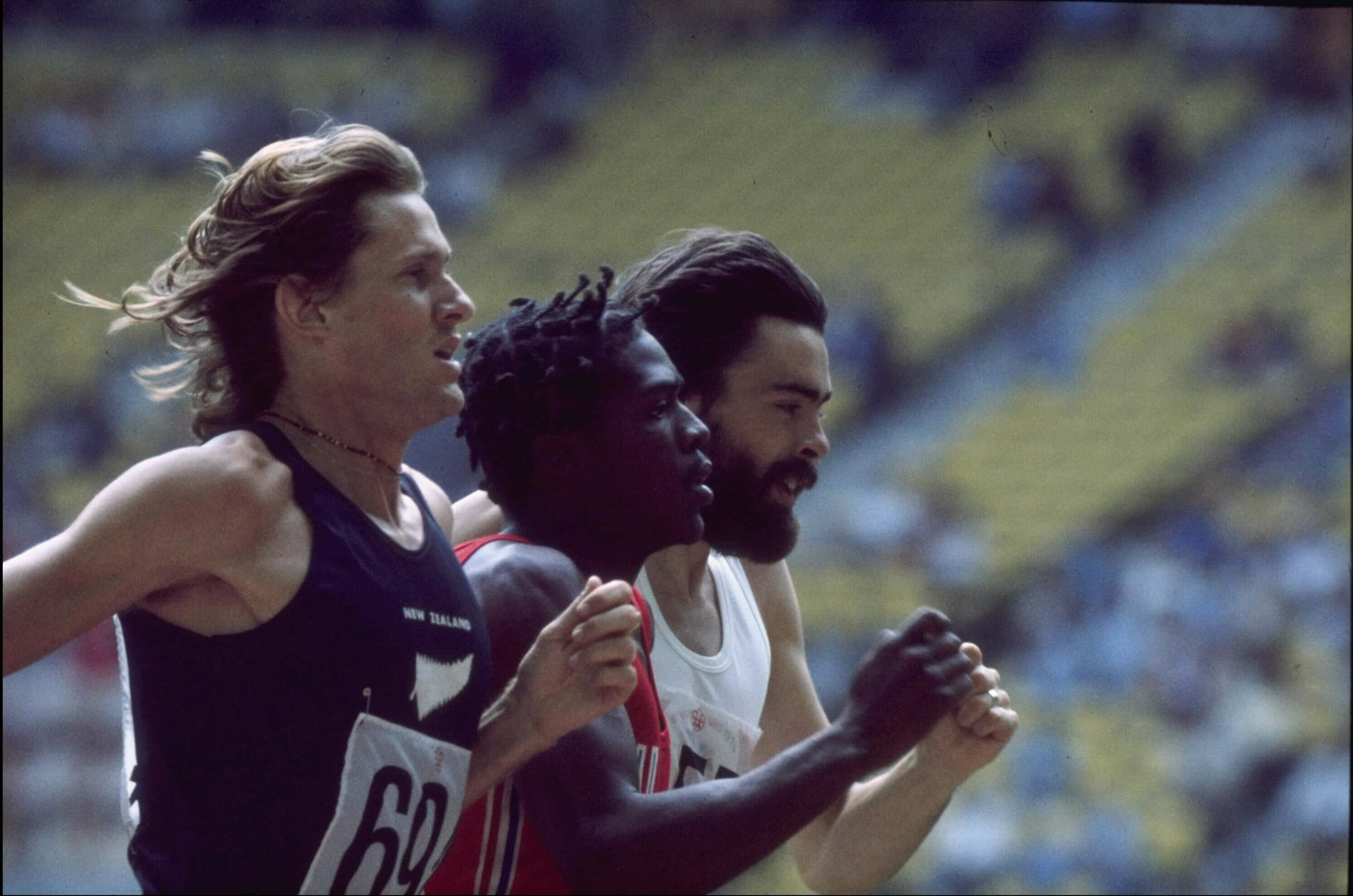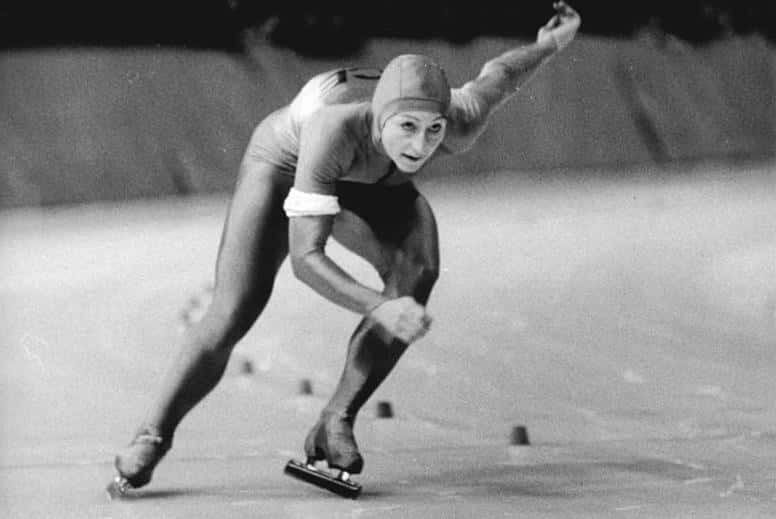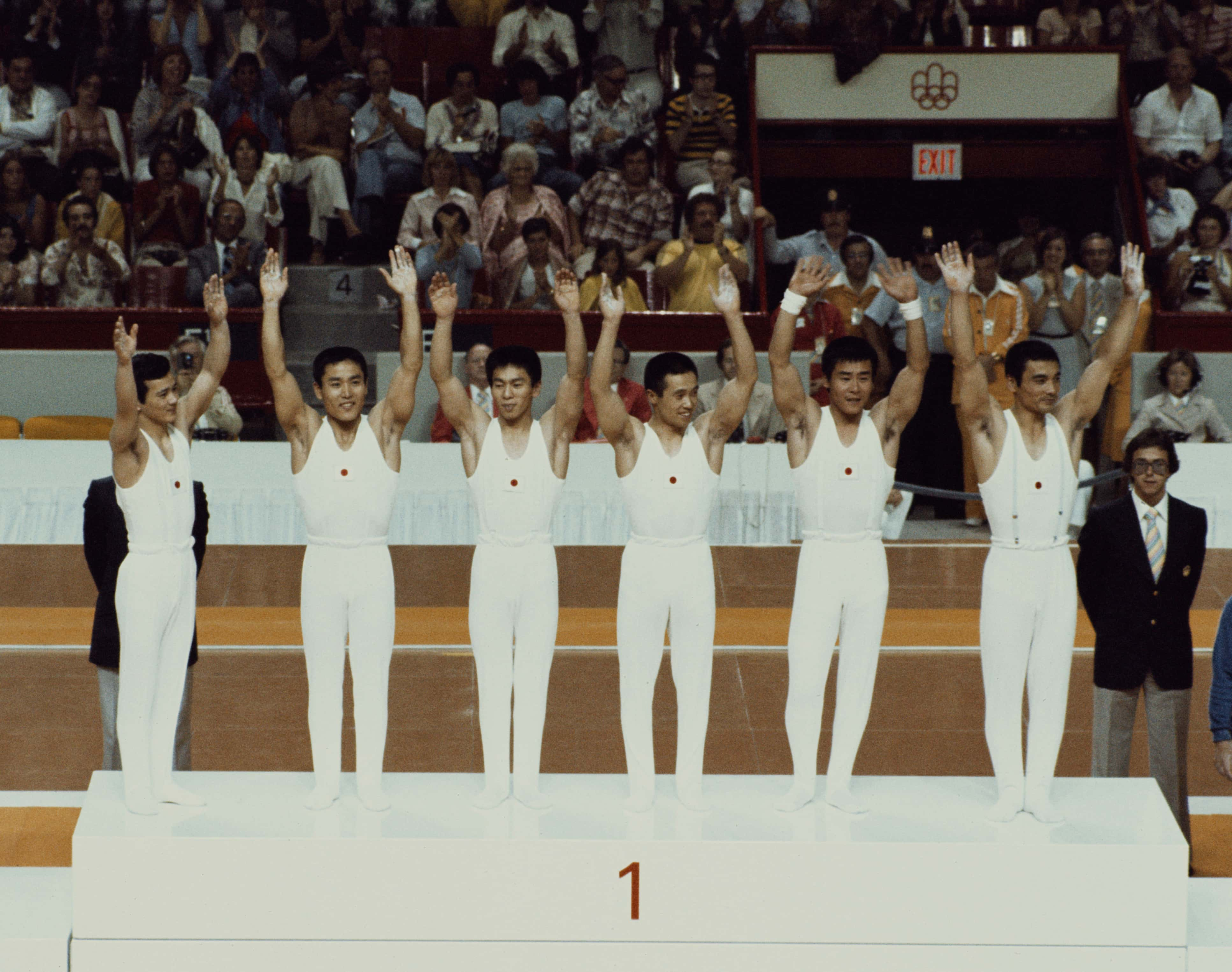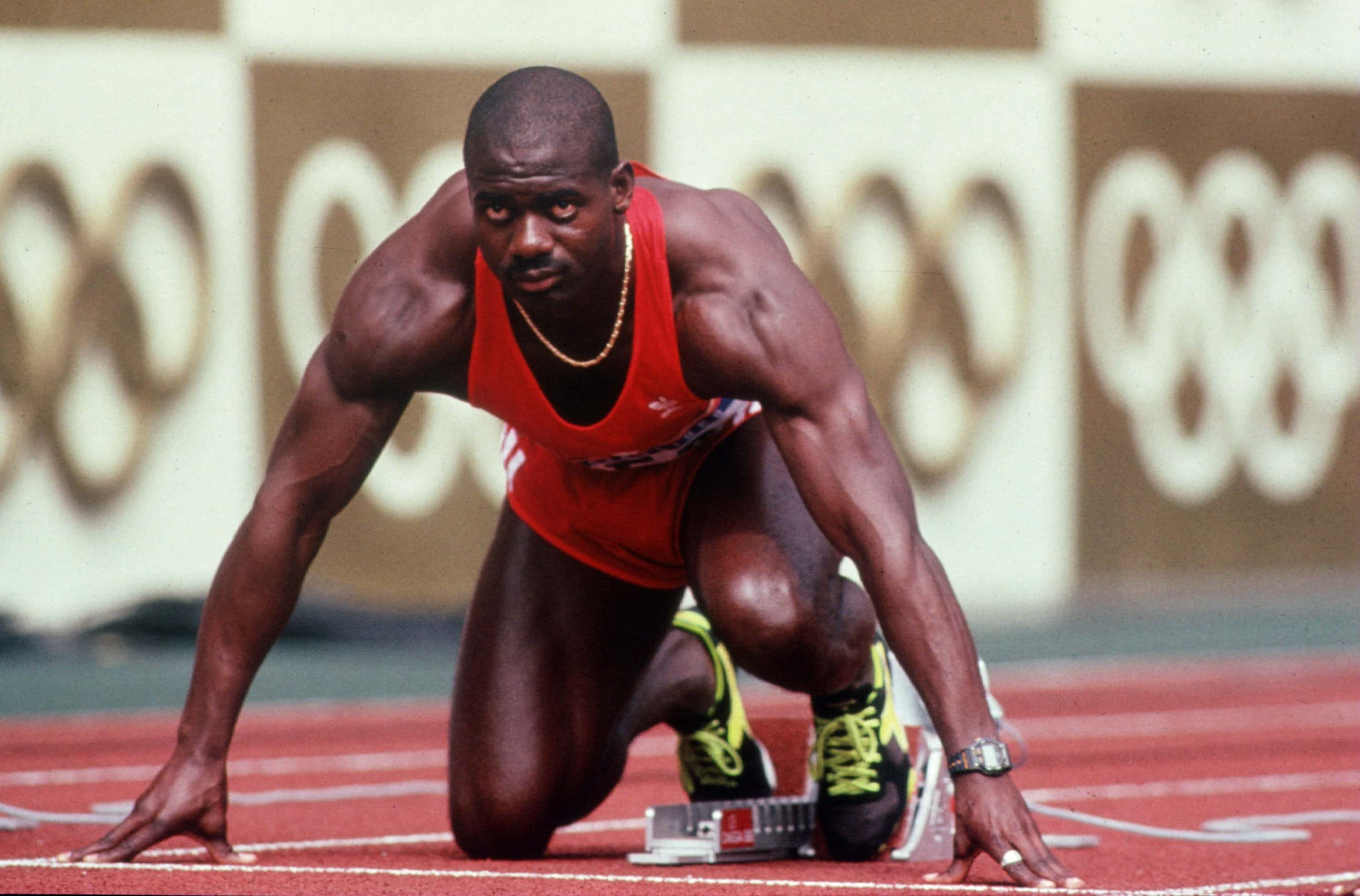Do you love to watch and criticize athletes as they perform incredible physical feats while you sit on the couch? Then these facts are for you!
41. Swim for Your Life!
The first 1896 Athens Olympics had some rough patches, none quite so rough as the cold waters the 1500 m swimmers had to brave, which had dropped to 55 degrees. The winner, a 15-year-old Hungarian named Alfred Hajos, learned to swim after watching his father drown two years previously. He said that his will to live totally overcame his desire to win.
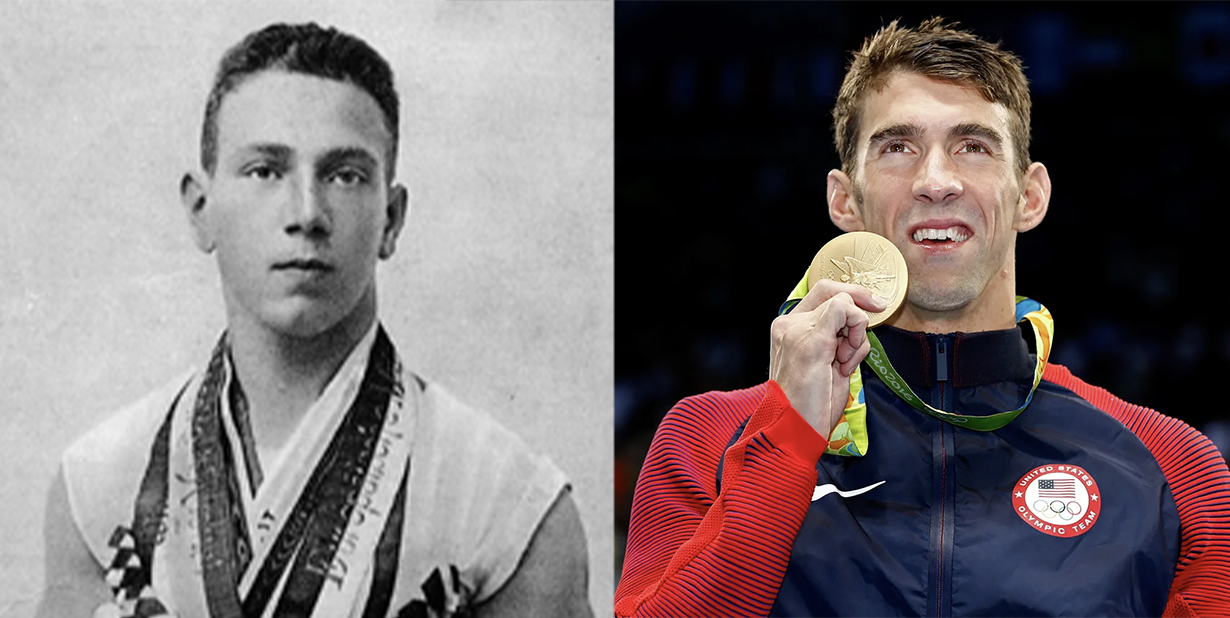
40. Audience Interaction
The first games had some surprising turns of events. In one case, an Oxford student named John Boland had planned to just be a spectator. But a friend in the Olympic committee signed him up for a quick game of Olympic tennis. Despite his lack of tennis whites, Boland played–and won!
39. Surprise Winner
When an American woman named Margaret Ives Abbott decided to play, and then won, a golf game in Paris in 1900, she had no idea she was playing in an Olympic game, or that she had won a Gold Medal. It wasn’t until her passing that it was revealed to her family that that game made her the champion in Women’s Golf. The games had been spread out informally that year over multiple months. Don’t think you could make that mistake now!
38. Grab a Drink?
Can drinking get you banned? In the 1968 games, Hans-Gunnar Liljenwall tested positive for booze , which was against the rules at the time. Nowadays, a blood booze level of over 0.1 will only get you in trouble in sports where it could be dangerous, like archery.
37. Shoeless Gold
In the 1960 Olympics, Ethopian athlete Abebe Bikila became the first black athlete to win gold in the marathon, which he ran barefoot!
36. Dude Looks Like a ….
In the 1936 Berlin Olympics, a German woman named Dora Ratjen came fourth in the women’s high jump. After setting a women’s record in 1938, a secret was discovered: Dora was actually a man. Horst Ratjen, his real name, would later claim the Nazis ordered him to pose as a woman “for the sake of the honor and glory of Germany". He also allegedly said, “For three years I lived the life of a girl. It was most dull".
35. Perfect 10?
Perfect 10s are rare in sports. But in 1924, 22 male gymnasts all got perfect 10s. And in the same event! It was rope climbing, which has since been discontinued for obvious reasons.
34. Perfect 1!
Gymnast Nadia Comaneci was the first to score a perfect 10.0 on the uneven bars. No one expected that—let alone the score boards, which showed it as a 1.0 instead.
33. Not Quite a Slam Dunk
Basketball had a slow start at the 1936 Olympics. The conditions were a disaster: the German venue was outside, on a dirt course, in the pouring rain. The approximate 1,000 fans had to stand in the wet to watch the not-so-rollicking game end. The score was only 19-8. Makes sense, though: how can you dribble in mud?

Sign up to our newsletter.
History’s most fascinating stories and darkest secrets, delivered to your inbox daily. Making distraction rewarding since 2017.
32. Skate or Space?
Figure skaters spin at over 300 RPMs, or about the same force that astronauts experience in centrifuge spinning. And when male figure skaters land? Watch out! They exert of 1,000 lbs of pressure.
31. USA!
Although it's not considered the most masculine or patriotic sport, since 1948, the US has medaled in every figure-skating competition in the Winter Olympics.
30. The Greatest
Muhammad Ali was so afraid of flying that he wore a parachute on his entire flight to the 1960 Olympics in Rome.
29. The Run Around
The marathon of the 1900 Olympics was a disaster: The route was confusing and poorly marked, and runners took wrong turns or accidentally joined up with the commuting cars, bicycles, and pedestrains. One man, Arthur Newton, was positive he had won because no one had passed him. He was actually 5th.
28. Front Runner
The same marathon had a local favorite, a French runner by the name of Georges Touquet-Daunis. However, the race took place in mid afternoon in July. To take a break from the 102 degree heat, Touquet-Daunis ducked into a café to grab a quick brew. One turned into a few, and he decided it was too hot to finish the race.
27. Slow Down, You’re Moving Too Fast
The following Olympic marathon in 1904 didn’t fare that much better. St. Louis’ 1904 games had their course on a dusty road, and many participants inhaled exhaust and needed medical attention on the sweltering day.
26. Rush Fourth
A Cuban, Felix Carvajal de Soto, finished fourth place in that 1904 marathon, and had a decidedly different strategy: He took breaks, stopped to chat with spectators, and even took some fruit from an orchard.
25. Push Pull
From the years 1900 to 1920, Tug of conflict was an Olympic Event, with the best teams hailing from Scandinavia and Great Britain.
24. Stockholm, Australia
Because of quarantine rules, every event in the 1956 games involving horses–polo, jumping etc.–couldn’t take place in Australia. Instead they took place in Stockholm, Sweden.
23. Sink or Swim
Swimmer Johnny Weismuller was an American celebrity. The five-time gold medalist in swimming went on to play Tarzan in 12 movies, and created the iconic Tarzan Yell.
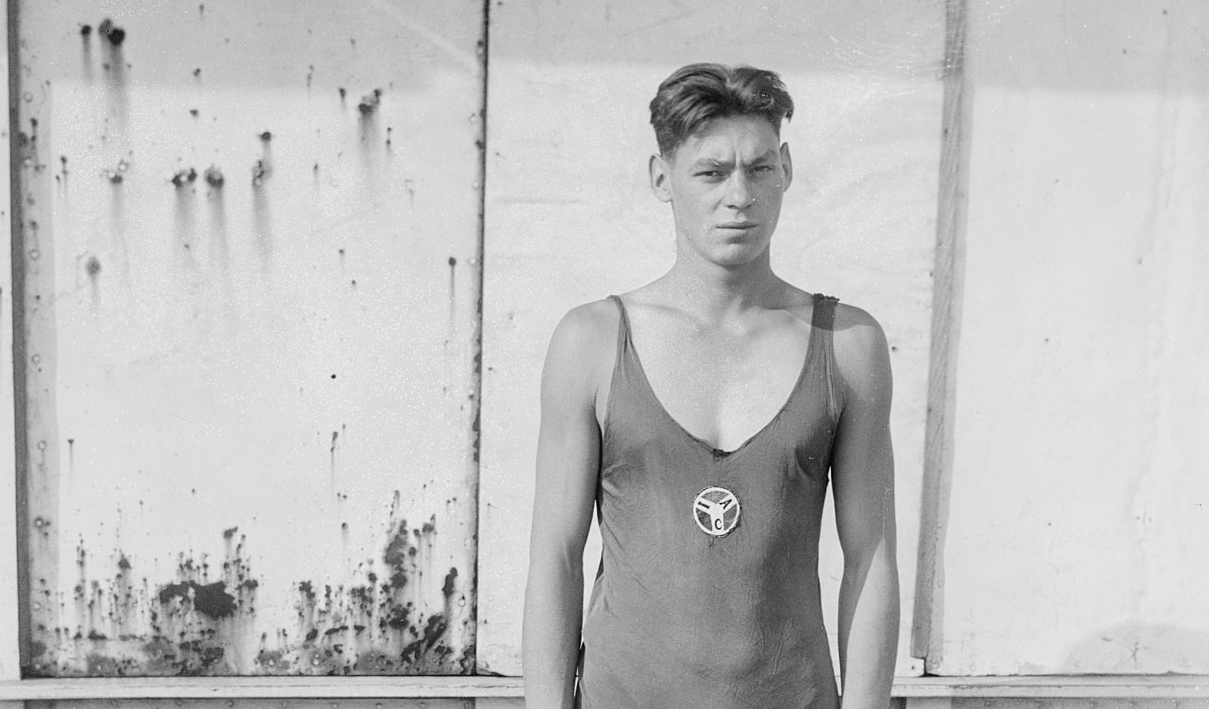 Bain News Service, Wikimedia Commons
Bain News Service, Wikimedia Commons
22. Stick to Your Lane
Hollywood producers had the same intentions for today’s Weismuller, Michael Phelps, until a disappointing turn on SNL showed that while Phelps can swim, he can’t really act. As a result, he lost out on the role of Tarzan.
21. Fool’s Gold
The Gold Medal isn’t actually gold, but silver with gold plating. When the winners bite it to show it’s pure, they probably shouldn’t bite it too hard!
20. You Only Need One
Hungarian quick shooter champion Károly Takács was known for his steady, right-handed shot. That was until a grenade destroyed his hand. No matter: Takács switched hands and won gold medals in the 1948 and 1952 Olympics.
19. Didn’t Just Go in Circles
One incredible man, gymnast George Eyser, won six medals in the 1904 Olympics: a bronze, two silvers, and three golds. Even more remarkable? He did it all with a wooden leg.
18. No Moonlighting
For decades, only amateur athletes could compete in the Olympics. That meant that legendary track star Jim Thorpe lost his status because of his $35 a week minor-leage baseball career.
17. Ride Strong
Danish horseback rider Lis Hartel won two silver medals in the 1952 and 1956 games in dressage. More incredible? In 1944, she contracted polio and lost the use of her legs. It took three years for her to ride again, and she needed help to dismount and mount the horse, but she remained a champion in the male-dominated sport.
16. Tireless
In 1912, the semifinal Greco-Roman wrestling match lasted a gruelling 11 hours. The winner, a Russian named Martin Klein, was too tired to compete in the final games.
15. Unknown Coxswain
The Dutch rowing team was ready to compete in the Paris Olympics in 1900. However, they were missing a coxswain, so they picked a local French boy–who may be the youngest competitor ever, and is entirely unknown to this day. He may have been as young as 10!
14. One’s a Crowd
A lone Englishman travelled all the way to Nice for the 1900 Olympics to watch the women’s croquet event, which was played only by French participants. It seems his was the only ticket sold for the event.
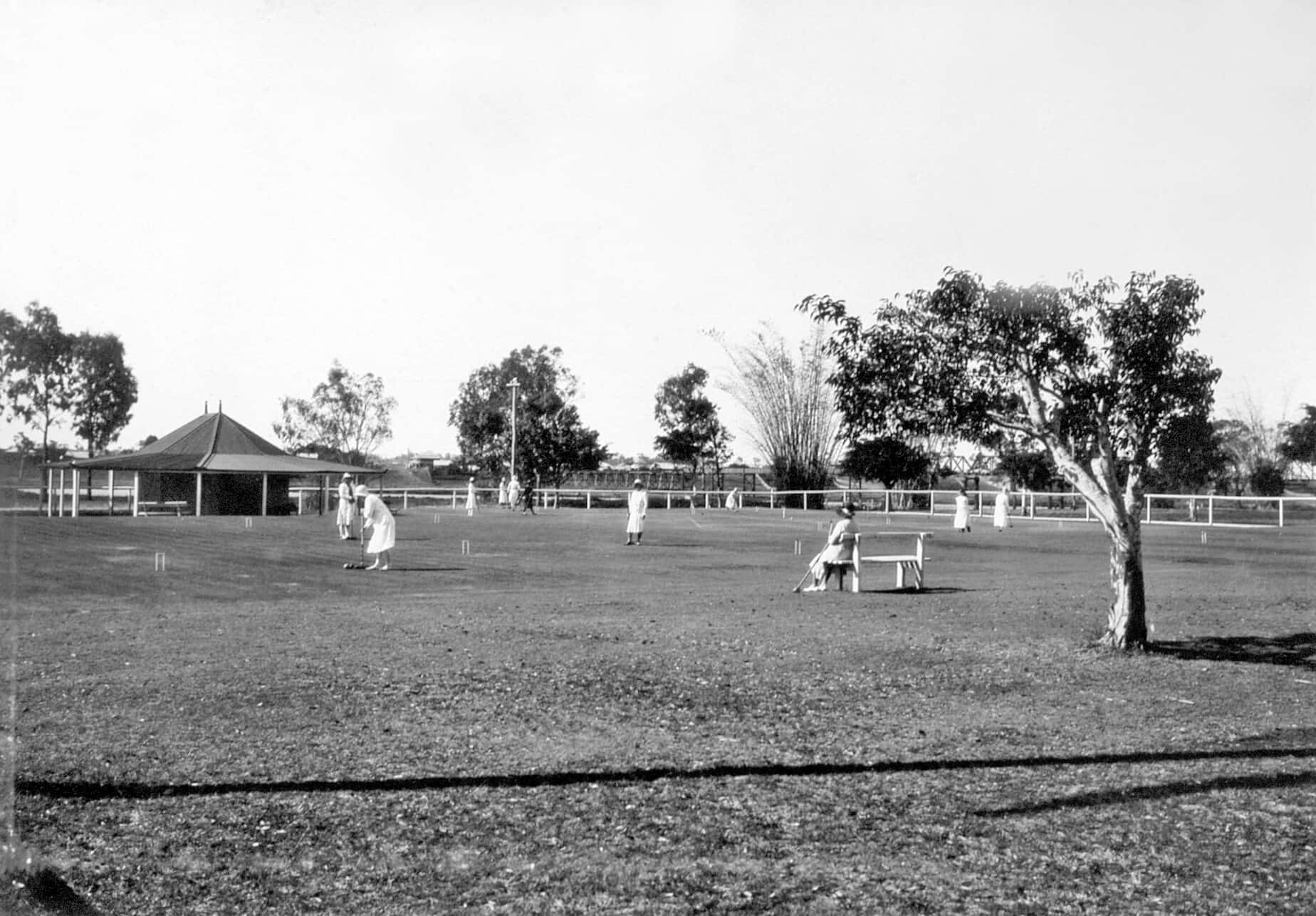 Flickr, Queensland State Archives
Flickr, Queensland State Archives
13. Ducks in a Row
Australian rower Henry Pearce won hearts when he stopped mid-race in the quarter final to let a family of ducks pass during the 1928 Olympics in Amsterdam. He also won the match, and went on to win gold!
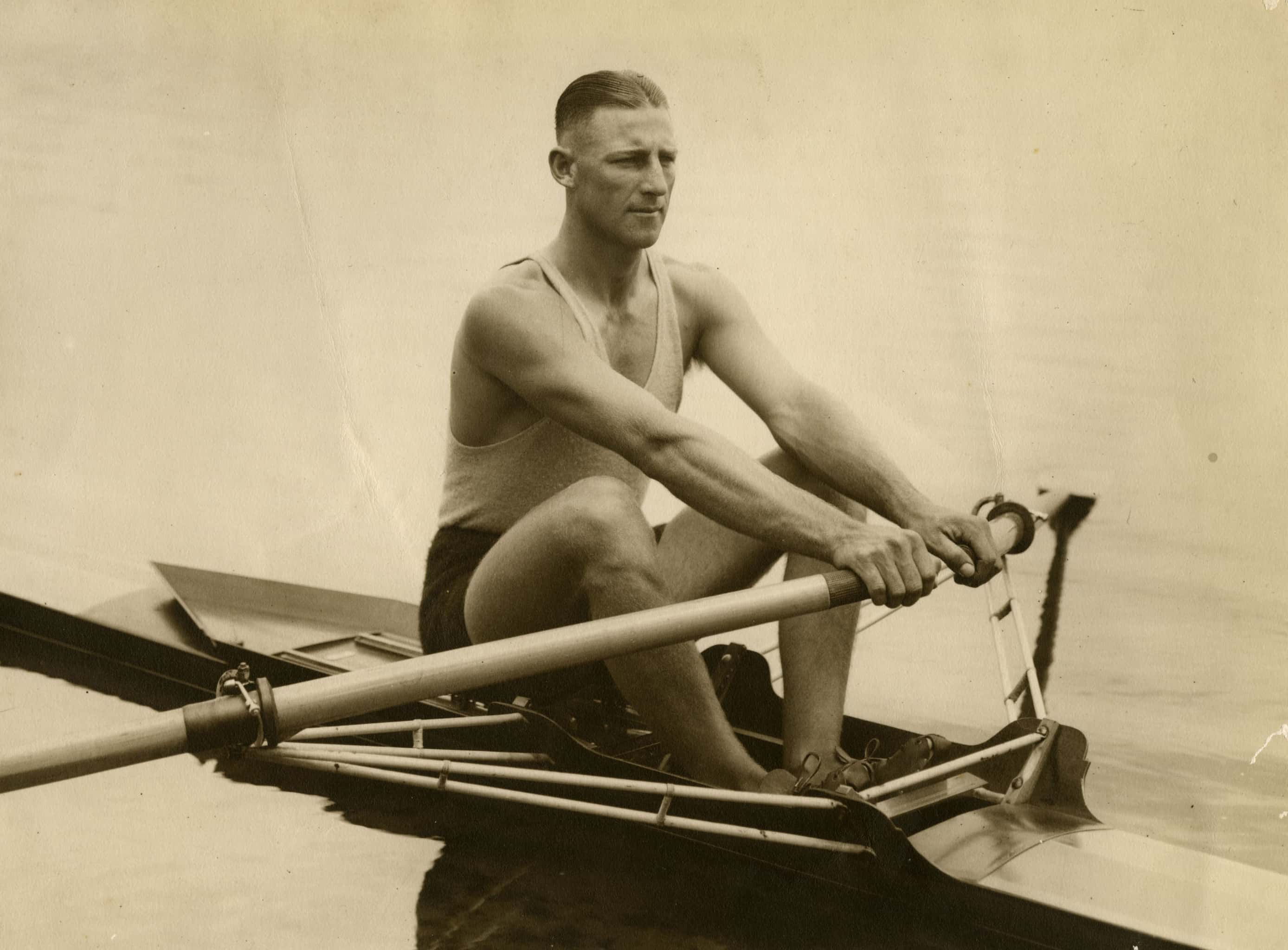 Flickr, Australian National Maritime Museum
Flickr, Australian National Maritime Museum
12. No Games
The Olympic games were cancelled during WWII, making them the only ones to not happen. However, a group of Polish Prisoners of conflict were allowed to hold POW Olympics in 1944. Their flag was made of sheets and pieces of cloth.
11. Quick Clean Up
The Montreal Olympics in 1976 nearly bankrupted the city, and in the final months before the Games, more than 3,000 labourers worked around the clock to finish construction on the stadium. When the first team entered the stadium, there were still workers with brooms removing debris.
10. Happy Day in LA
At the opening ceremony of the 1984 Los Angeles Olympics, the athletes broke rank to join in spontaneous dancing.
9. Fun and Games
Everyone has a good time at the games, but the athletes have a really good time. In the 2000 games, there were 70,000 condoms given out in Olympic Village. By 2016, over 450,000 were provided.
8. For All Seasons
It wasn’t all bad news in 1988, though. German cyclist Christa Luding-Rothenburger won a silver medal in cycling. What makes that interesting? She was a speed skater, and already won two medals at the Winter Games.
7. Black Power
In 1968, the gold and bronze medalists in sprinting made a brave stand for their beliefs. Americans Tommie Smith and John Carlos stood on top of the podium, bowed their heads, and raised black-gloved fists during the national anthem. Australian silver medalist Peter Norman also wore a badge for human rights in solidarity. In 2006, Smith and Carlos were pallbearers at Norman's funeral.
 Wikimedia Commons, Angelo Cozzi
Wikimedia Commons, Angelo Cozzi
6. Bad McMarketing
In 1980, McDonald's had a great idea: They had a plan to offer free Big Mac meals to customers if the US won gold in certain events on McDonald's' scratch cards. In the last games, the US won 34 medals. However, the Communist Bloc boycotted the 1980 games, and as a result the US won a whopping 83 gold medals. Restaurants ran out of Big Macs, and it cost the company a pretty penny.
5. Twin Trouble
Puerto Rico’s relay team had a problem when star runner Madeline de Jesus hurt her leg in the LA Games in 1984 before the relay event. Her solution? She had her identical twin Margaret run the race for her. When the chief coach of the Puerto Rican team learned of the ruse after a qualifying heat, he pulled his team out.
4. Hop on the Lorz-y
Fred Lorz won the 1904 marathon by a lot. Like, he hopped on a car for 10 miles of the race a lot. After the car broke down, he ran the final five miles, and entered the stadium to cheers. The hoax was quickly exposed and Lorz happily admitted his ploy.
3. National Pride
Tamio "Tommy" Kono began weightlifting in World W. II–not as a soldier, but as a prisoner in a Japanese internment camp. He and his family were forced from their home in San Francisco and were moved to a detention center in the Californian desert. They endured brutal conditions, but the climate agreed with Kono. He’d go on to set seven Olympic records and 26 world records.
2. Under Pressure
The Japanese men’s gymnastics team was the favorite in the 1976 Olympics, having won gold since 1960. Shun Fujimoto felt that pressure, and ended up breaking his kneecap. Knowing his team needed him, he continued on in the team event and hopped on the pommel horse, scoring 9.5. He then went on to the rings, where he landed with gritted teeth and tearful eyes. The judges awarded him 9.7 (a personal best) and he collapsed in pain. He only stopped when he was told he risked permanent damage. His team still won gold.
1. Just Say No
During the 1988 games in Seoul, Canadian Ben Johnson won the 100m dash and made a world record in the process. The glory was short-lived and scandal struck after Johnson tested positive for steroids. He was the first world-famous athlete to be disqualified for substances.


